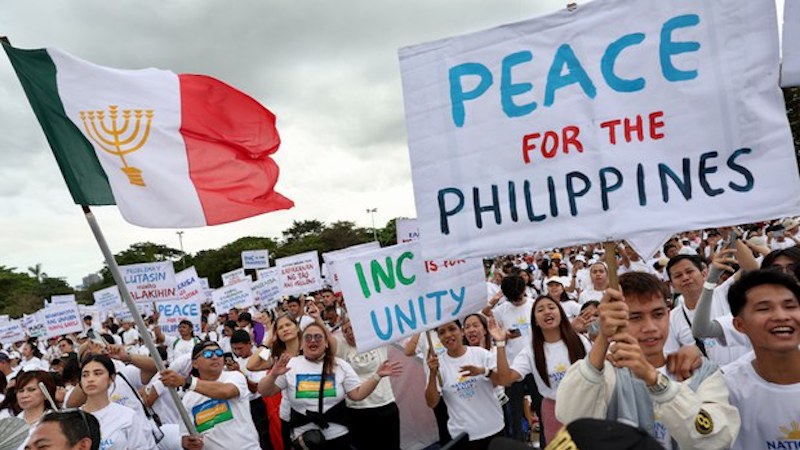Faith vs. Ballot: Philippine Religious Factions Clash in Pre-Election Showdown

Religious Rallies Heat Up Political Landscape Ahead of Philippine Elections
As the national elections approach, religious groups across the Philippines are ramping up their political engagement, taking to the streets with unprecedented energy and passion. Traditionally, faith-based organizations have been known to mobilize their followers during election seasons, but this year's demonstrations are showing a particularly intense level of political activism.
These rallies, typically organized by various religious denominations, serve as powerful platforms for expressing political views and influencing voter sentiment. From Catholic groups to Protestant organizations, religious leaders are leveraging their community influence to shape the political discourse and encourage civic participation.
The growing momentum of these political gatherings reflects the deep interconnection between faith and politics in the Philippines, where religious beliefs often play a significant role in electoral dynamics. Supporters are not just passive participants, but active agents of political change, using their collective voice to advocate for their preferred candidates and policy positions.
As the election draws nearer, these religious-led political rallies are expected to become even more prominent, potentially playing a crucial role in determining the electoral outcome and reflecting the complex relationship between spirituality and political engagement in Philippine society.

